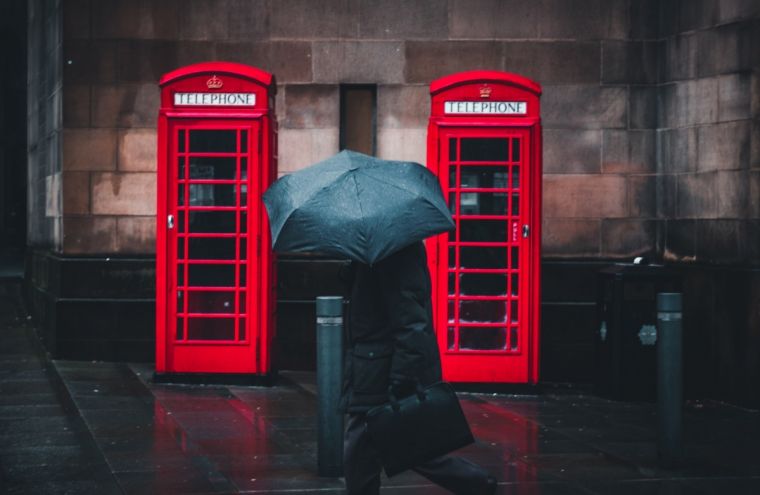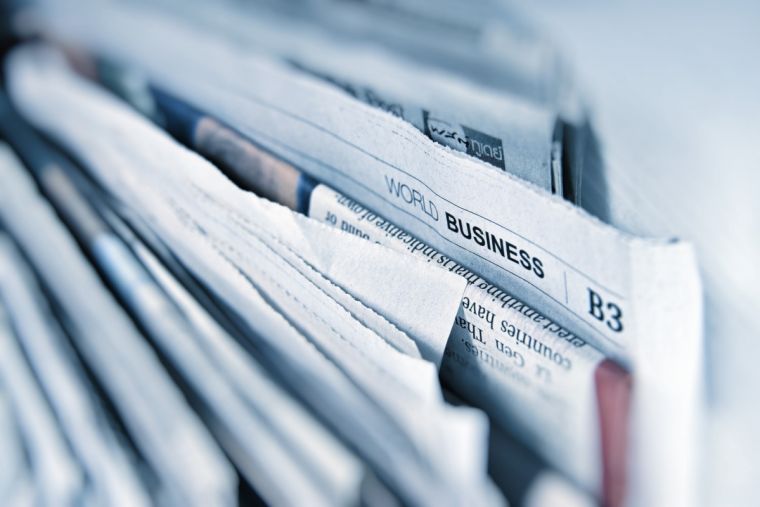In the age of Brexit, we may be more radicalised than we think

Have you been radicalised by social media (and other media)?
I suspect your instinctive answer to that question is "No". We all like to believe that we are impervious to being swayed by propaganda and advertising. Yet strangely marketing and advertising continue to be huge and incredibly profitable industries. Companies would not sow those large amounts of cash if they were not seeing fruit! Perhaps we believe ourselves to be somehow 'above the fray' – that less savvy folks may be more easily influenced, but that we fully understand what is going on. I fear we are being naïve to how susceptible we all are to suggestion and the reality that we are fallen creatures longing to belong.
I have had the privilege in the last six months of speaking at Christian festivals and events right across the UK and Europe. As I reflect on our Brexitly divided nation, one moment sticks out. As always at one of our Christians in Politics sessions, I ask for a quick survey from the assembled crowd as to why they have come. Are they already involved in politics, are they hacked off with politics, are they just curious as to how any Christians could even dream of getting involved? It has given me a fascinating insight into the preoccupations, passions and priorities of Christians in the UK.
On this particular afternoon, in the midst of a passionate defence of Brexit, one gentleman shared that he had never read the Guardian, had no desire to do so and didn't know anyone who did. The next person I chose said, "I have never read the Telegraph, I have no desire to do so and I must confess that until this moment I didn't know anyone who did." Cue much nervous laughter.
So we got those two gents together to chat and pray with each other later in the session. They both found it eye-opening. Each of them had not believed that a 'real Christian' could think some of the things that their new friend thought. They exchanged emails and promised to keep in touch. Similar (but less dramatic!) connections happened in many other settings.
READ MORE: Christians must make the first move to bridge the divide over Brexit
Happily, the same thing is continuing to happen in Christians in Politics local groups around the country - bringing people together from across the political spectrum, and from both sides of the remain/leave divide, learning to disagree well and to put kingdom before tribe.
As those gents showed, people have always stuck with the newspaper that most fits their worldview. For decades papers have always had differing takes on the same story. In recent times though, it has been notable how the worldview of newspapers has become much narrower and less generous to those who hold even slightly different views.
We need to read with a critical eye. Is what is being presented to us fact? Or is it just opinion? The lines are increasingly and intentionally blurred, and this is taken to dangerous levels when independently owned media corporations have their own news channels. Much of what is presented is not news, but opinion, which is all the more persuasive when presented using the format of a news programme. Then beyond the issue of fact-checking, we have to take a step back and look at the priorities represented by newspapers or websites. What they are printing may be true, but should it be on the front page? Who is telling us which issues are most important in our society?
We need to reaffirm the important vocation of journalism. Without it, democracy does not function effectively. At its best, it holds those with power accountable. Journalism has founding ethics with regard to reporting truth, checking sources, and ensuring balance. The problem is that so much of our information these days does not come through those healthy filters.

In the internet age, everyone can be a newspaper, publishing whatever they want to say, whether it is founded in fact or mere prejudice. So you can be a newspaper, but you can do it without being trained as a journalist. We wouldn't let people set up medical surgeries if they had not trained to be doctors. Obviously there is much to celebrate about some grassroots stories that come to light that otherwise would not in our new hyper-connected age, but we need to be careful about what we may be sacrificing along the way.
This online free-for-all would not be so problematic were it not connected to the phenomenon that is social media. By now, most of us know how the most extreme versions of what we think are being sold back to us, reinforcing our silo-ed thinking. It is the nature of the beast. Social media algorithms are designed to sell us stuff we already like for profit, and they would not exist otherwise. Our need for vigilance is therefore that much larger. Many of us have probably had the experience of someone who we have known as a loving, relational, open-minded human being surprising us greatly with a post or a tweet. Either they just lose it, knee-jerking some toxic comments or just calmly linking to something we can't believe that they agree with, never mind want to share with the world.
People are being radicalised. I can't think of a more appropriate word for it. I know it conjures up connotations of terrorist grooming, but the methodology is very similar. The constant reinforcement of only one opinion on a subject leads to that person becoming more and more convinced of that absolute truth, but also crucially more angry about anyone else not holding that view. Gradually the very humanity of those holding the opposite view is questioned, ceding permission to either verbally or physically 'take them out'.
Now this is not to say that we should not be seekers of truth. My point is that what we believe needs to be regularly exposed relationally to other viewpoints that may sit alongside it, or in fact stand directly against it. And the key word here is relationally. As we saw with our two friends in my session, it is amazing what can happen and how de-radicalising that can be. And it is very rare for it to happen via social media.
This is also not about finding some fuzzy middle ground and coming to mushy compromises, though it may have that effect in some circumstances. This is about continuing to believe what we believe, but to start mixing in some grace with our truth. This is about reading beyond our borders, be that podcasts, newspapers or websites.
Click where your gut doesn't want you to click. Buy a paper you normally wouldn't. You may be surprised what you learn. You may not agree but it may sharpen and improve your arguments, and just maybe you will begin to understand where others are coming from, and that might help you find a common vocabulary to at least have a conversation.
At this point in our country, we are struggling to even curate that shared space. And it is crucial if we are not to slide even further towards a situation akin to the divisions we see in the USA, where two cultures exist together and yet separately within one country. We need people to straddle that gap. Could that be you?
I come from Northern Ireland, so I am all too painfully aware of what happens when tribes exist separately within the same country. In the UK right now, there is a real danger of a cultural divide becoming a cultural chasm, from which we may struggle to return. It's why we need to stay focused on that bloodied cross that is the only reason we can be reconciled to God, to each other, and to the rest of creation. There we find humility to listen. There we find grace to embrace. There we find power to be transformed. May it be so.
Andy Flannagan is executive director of Christians in Politics and author of "Those Who Show Up".











